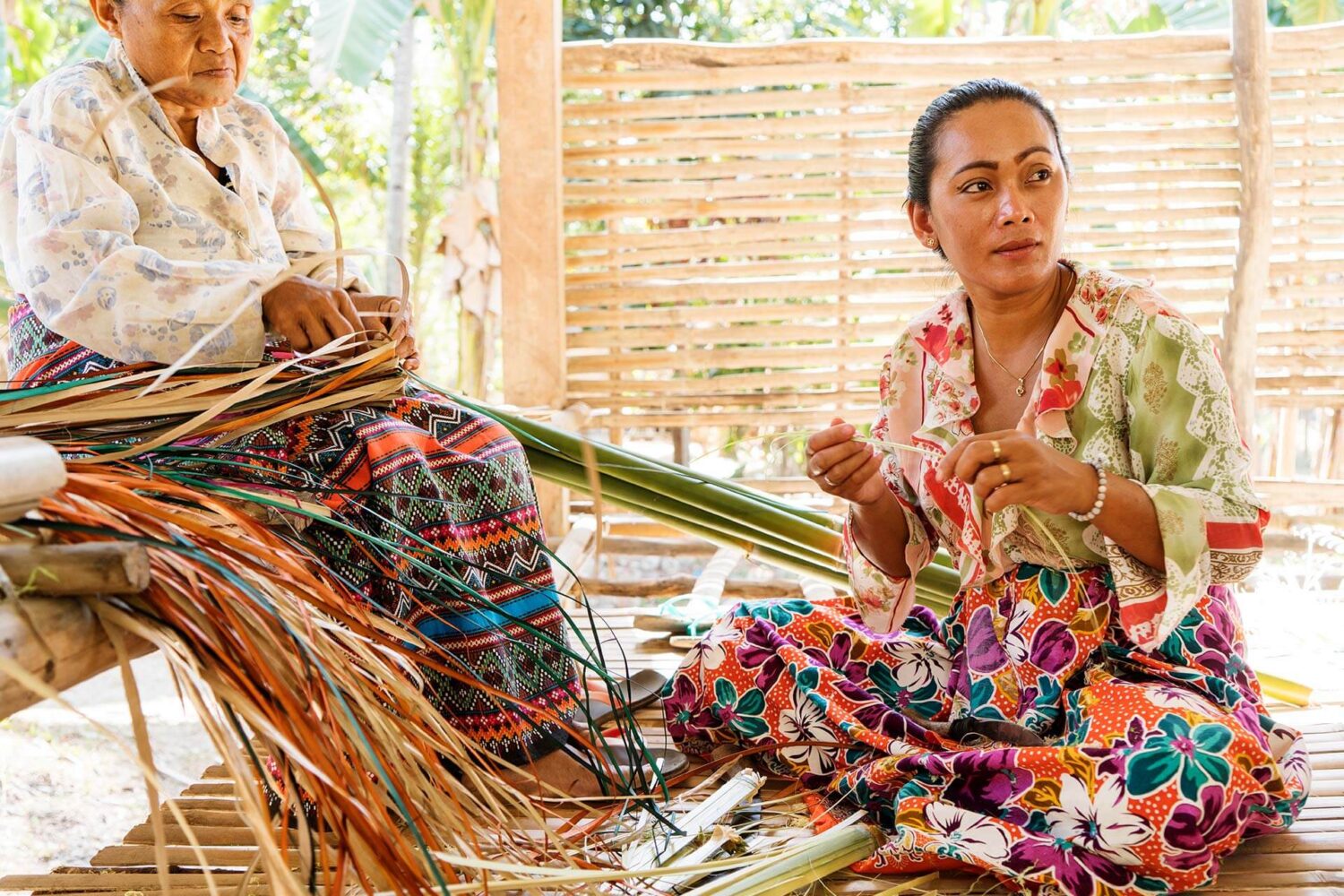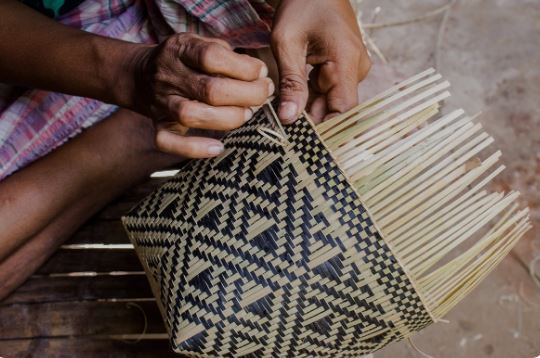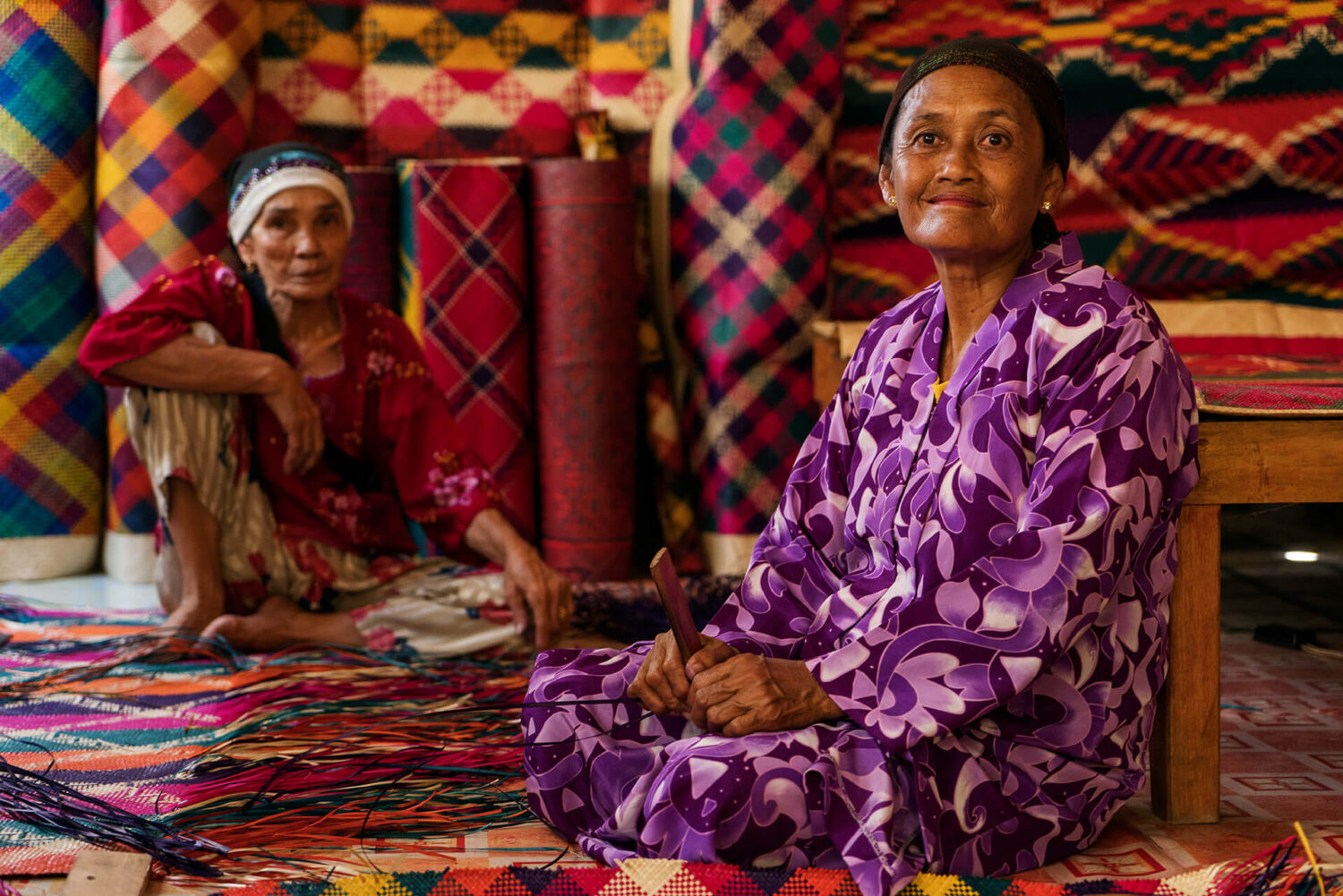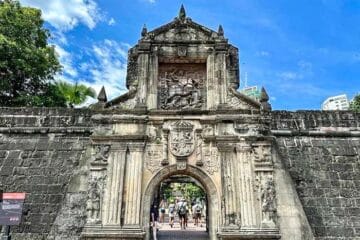Traditional textiles and weaving in Palawan are deeply rooted in the cultural heritage of the indigenous communities inhabiting the region.

Skilled artisans craft intricate fabrics using age-old techniques, reflecting the rich tapestry of Palawan’s diverse cultural landscape.

Here’s a detailed list exploring traditional textiles and weaving in Palawan:
1. Inabel Weaving:
- Description:
- Inabel is a traditional handwoven fabric crafted by the indigenous communities of Palawan.
- The fabric is known for its intricate patterns and vibrant colors, often featuring geometric motifs inspired by nature.
2. Abaca Fiber Textiles:
- Description:
- Abaca, a type of banana plant native to Palawan, is a key material for weaving textiles.
- Palaweños skillfully extract fibers from abaca plants, creating durable and textured fabrics used in various applications.
3. Bamboo and Rattan Weaving:
- Description:
- Weaving techniques extend beyond textiles to include bamboo and rattan crafts.
- Artisans create intricate baskets, mats, and other functional items using these natural materials, showcasing the versatility of traditional weaving.
4. Bansuan Weaving:
- Description:
- Bansuan weaving is a traditional craft among the Tagbanua people of Palawan.
- Artisans produce finely woven mats and baskets using indigenous materials, demonstrating their commitment to sustainable practices.
5. T’nalak Weaving:
- Description:
- T’nalak is a traditional fabric crafted by the T’boli people of Palawan, particularly in the southern regions.
- It involves a labor-intensive process of abaca fiber extraction, dyeing, and weaving, resulting in unique and visually striking patterns.
6. Handloom Weaving:
- Description:
- Handloom weaving is a prevalent method in crafting traditional textiles in Palawan.
- Artisans use wooden handlooms to create fabrics with precision, allowing for intricate designs and patterns.
7. Natural Dyes:
- Description:
- Traditional textiles in Palawan are often dyed using natural pigments derived from plants and minerals.
- Local flora, such as leaves, barks, and roots, contribute to a spectrum of colors, reflecting the eco-friendly practices of indigenous weavers.
8. Mat Weaving:
- Description:
- Mat weaving is a traditional craft integral to daily life in Palawan.
- Mats serve various purposes, from sleeping to ceremonial use, and are often intricately woven with unique patterns.
9. Lalab Weaving:
- Description:
- Lalab is a traditional weaving technique used by the Palaw’an people.
- This method involves creating finely woven mats and baskets, showcasing the artistry and skill of the weavers.
10. Tribal Textile Patterns:
- Description:
- Tribal textiles often feature distinct patterns that carry cultural significance.
- Motifs may represent stories, symbols, or elements of nature, preserving the cultural identity of Palawan’s indigenous communities.
11. Sustainable Practices:
- Description:
- Weaving in Palawan often aligns with sustainable practices, emphasizing the use of locally sourced materials and eco-friendly dyeing techniques.
- Artisans prioritize environmental conservation and maintain a harmonious relationship with nature.
12. Community-Based Weaving Centers:
- Description:
- Some communities in Palawan have established community-based weaving centers.
- These centers serve as hubs for preserving traditional weaving knowledge, fostering cultural exchange, and supporting local economies.
Preservation and Revitalization Efforts
- Cultural Workshops: Various cultural workshops and initiatives are dedicated to teaching the art of traditional weaving to younger generations, ensuring the continuity of this cultural heritage.
- Collaborations with Designers: Collaborations between indigenous weavers and contemporary designers contribute to the revitalization of traditional weaving, bridging the gap between tradition and modernity.
- Promotion of Indigenous Crafts: Events, exhibitions, and tourism initiatives that highlight traditional textiles and weaving play a crucial role in promoting and preserving Palawan’s indigenous crafts.
Traditional textiles and weaving in Palawan are not just crafts; they are living expressions of cultural identity, heritage, and sustainable practices.

The intricate designs, natural materials, and time-honored techniques encapsulate the deep connection between Palawan’s indigenous communities and the artistic legacy they carry forward.



